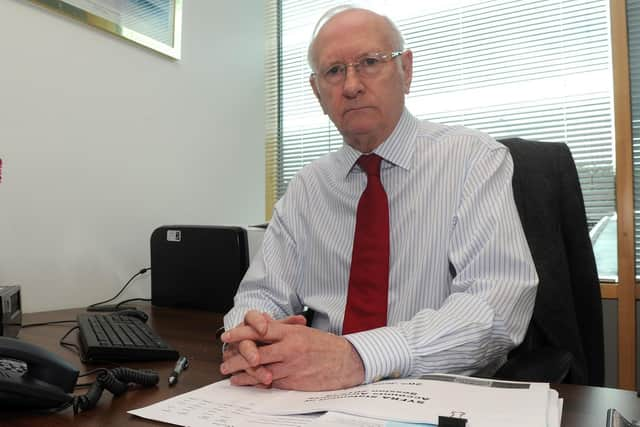After Star Hobson and Arthur Labinjo-Hughes, training is vital to keep children safe - Dr Alan Billings
Star was 16 months old when she was murdered by her mother’s girlfriend, who was gaoled along with her mother for what was described in court as their cold and callous mistreatment of Star.
Arthur was six when he died following months of pain and suffering at the hands of his father and stepmother.
Advertisement
Hide AdAdvertisement
Hide AdWe don’t have to be clairvoyant to know that the reviews will draw attention to the fact that each child was known to the authorities and there will almost certainly have been missed opportunities to intervene and save them. Sadly, this has become a common theme of many such Serious Case Reviews – as they were once called – now Safeguarding Practice Reviews.


I wanted to know, therefore, what South Yorkshire Police were doing to train officers and staff to be better at recognising those critical moments when they could and should intervene. Assistant Chief Constable Dan Thorpe suggested I join the training day Child Matters which all officers have been taking, including the senior command team. So I did.
The course has been prepared by SYP with assistance from the NSPCC, Unison, Diabetes UK, the Police Federation and other partners and is delivered by two experienced police officers, Det Chief Insp Emma Cheney and Det Sgt Kathy Coulter, and a forensic paediatric psychiatrist, Dr Jodie Howarth-Beal. It was a full day – 8.30am to 4.30pm – intense and harrowing.
As well as some theoretical work about child development, much of the day was spent understanding how to recognise the signs that a child is being neglected, abused or mistreated. This is important for officers to understand since they are often going into people’s homes for one reason or another – not necessarily to check for child neglect – and need to be able to spot signs quickly and accurately and then to act with confidence. But the presenters were also keen to stress that being observant is a matter for all of us, whether police or not. We were joined on the course by people from the NHS and South Yorkshire Fire and Rescue.
Advertisement
Hide AdAdvertisement
Hide AdThe most impactful part of the day was when we spent time looking at some actual body worn video footage from SYP officers who had entered properties and found children who were at risk. Many myths were swept away – such as the idea that professional or middle class parents could not be guilty of child neglect or that no parents were ever capable of hating their own children.
Unlike social workers, police have a power that enables them to enter a property and a power to take children to a place of safety. A social worker can apply to the court for an Emergency Protection Order, but that could take days.
These are serious and intrusive powers and the point of the day was to enable officers to make a correct judgment about what they were seeing.
Were these chaotic parents who could be helped to lead more structured lives with their children? Or was something far more serious happening that needed the children to be removed altogether? In which case they needed evidence that would stand up in court.
Advertisement
Hide AdAdvertisement
Hide AdWe were also encouraged to try to see the world as the vulnerable child sees it. Children who are being neglected have nothing with which to compare how they are treated by their parents. This is ‘normal’ life for them. They will naturally be distressed if parted from their parents, even if those parents are showing them little love or affection. On the other hand, where children were putting up their hands and asking an officer to hold and cuddle them, that too was significant.
We also learnt to understand how devious some parents and step-parents could be in hiding the truth about what was really happening. Officers had to develop and deepen their skills of what is called professional curiosity.
Is the course having an impact? It is still early days, but I notice that the number of child neglect cases the force deals with has risen from about 10 per month before the course began to about 140 per month now – which speaks for itself. I also note that 17 other police forces are interested in it.
I came away from the day greatly encouraged that our police are all doing this training. I realise full well that the judgments we ask them to make are far from easy; but for the sake of our children they are calls they have to make. Because it is possible that no one else will.
An extract from a blog post by the South Yorkshire Police and Crime Commissioner.